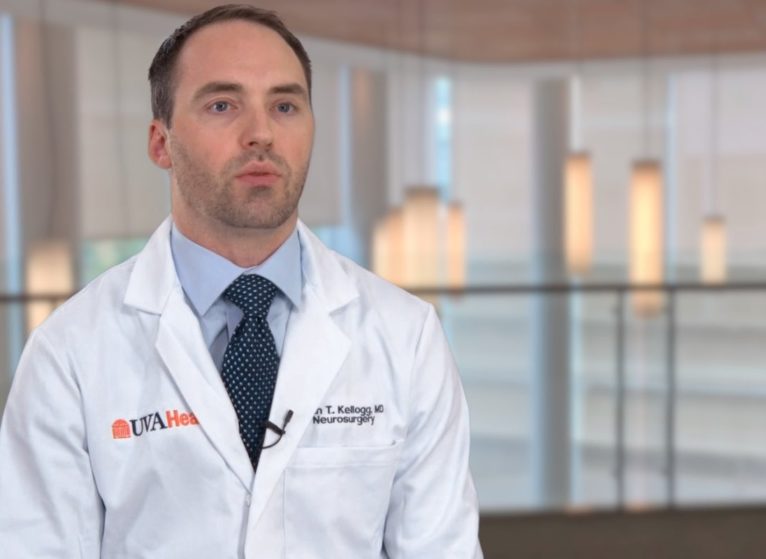Through surgery and technology, neurosurgeons can prevent, diagnose, and treat conditions involving the brain, spinal cord, and nervous system. Neurosurgeon Ryan Kellogg, MD, uses advanced surgical technology and minimally invasive surgery to improve his patients' care.
Meet Neurosurgeon Ryan Kellogg, MD
Kellogg specializes in stroke care and cerebrovascular neurosurgery, which involves the blood vessels that supply the brain and the spine. These conditions include:
- Carotid artery disease
- TIA (mini-stroke)
- Aneurysms
- Arteriovenous malformations
We asked him to answer our 7 Quick Questions.
Why did you become a doctor?
I was extremely interested in surgery throughout high school and college. I even had the opportunity to observe a few operations. Working with my hands was something that I really enjoyed. And I discovered surgery provided a way to help people and do something I loved.
Why did you choose neurosurgery?
In college, I found an interest in neuroscience and majored in neurobiology. The brain and nervous system was something that pulled me toward a career in neurosurgery.
I entered medical school with the intent of becoming a neurosurgeon. My clinical rotations really convinced me this was the specialty for me. I loved watching complex brain tumor resections and cerebrovascular cases that demanded a lot from the surgeon. This field offers the possibility to impact the patient's outcomes significantly.
What's one thing about your specialty that might surprise people?
We operate on the spine in addition to the brain. I have met many people who don't realize that the management of spine pathology is a major component of neurosurgery. Anywhere from 60-70% of neurosurgery is treating disorders of the spine and spinal cord.
What's the most exciting research happening in your field right now?
Robotics and artificial intelligence are making huge impacts in the field of neurosurgery. From a diagnostic perspective, neurosurgeons rely on advanced medical imaging such as MRI and CT scans.
These imaging techniques are essentially large data sets that computers can analyze and help improve our ability to make faster and more accurate diagnoses. This type of AI technology applied to medical imaging has made a huge impact on treating patients suffering from a stroke.
Robotics is another up and coming technology that has tremendous potential to improve the accuracy and precision of complex spine and brain surgeries. Additionally, telerobotics offers the potential for the remote treatment of ischemic stroke to improve access to advanced stroke care.
Where did you grow up?
I was born and raised in Bellevue, Washington, and lived there until I moved to North Carolina to attend Duke Medical School.
Who is your inspiration or hero?
My parents have always been inspirational to me (with Michael Jordan being a close second) and are the biggest reasons I am doing what I love as a job.
The training to become a neurosurgeon is certainly one of the longer processes and requires a lot of sacrifice and commitment. Having the support of my family over the many years made the journey easier to survive.
What's your favorite thing about working at UVA?
Working with the staff, residents, and the other faculty. The transition to Virginia and working in a new hospital system has been much less stressful than I had imagined, and this is largely due to everyone's friendliness at UVA.

